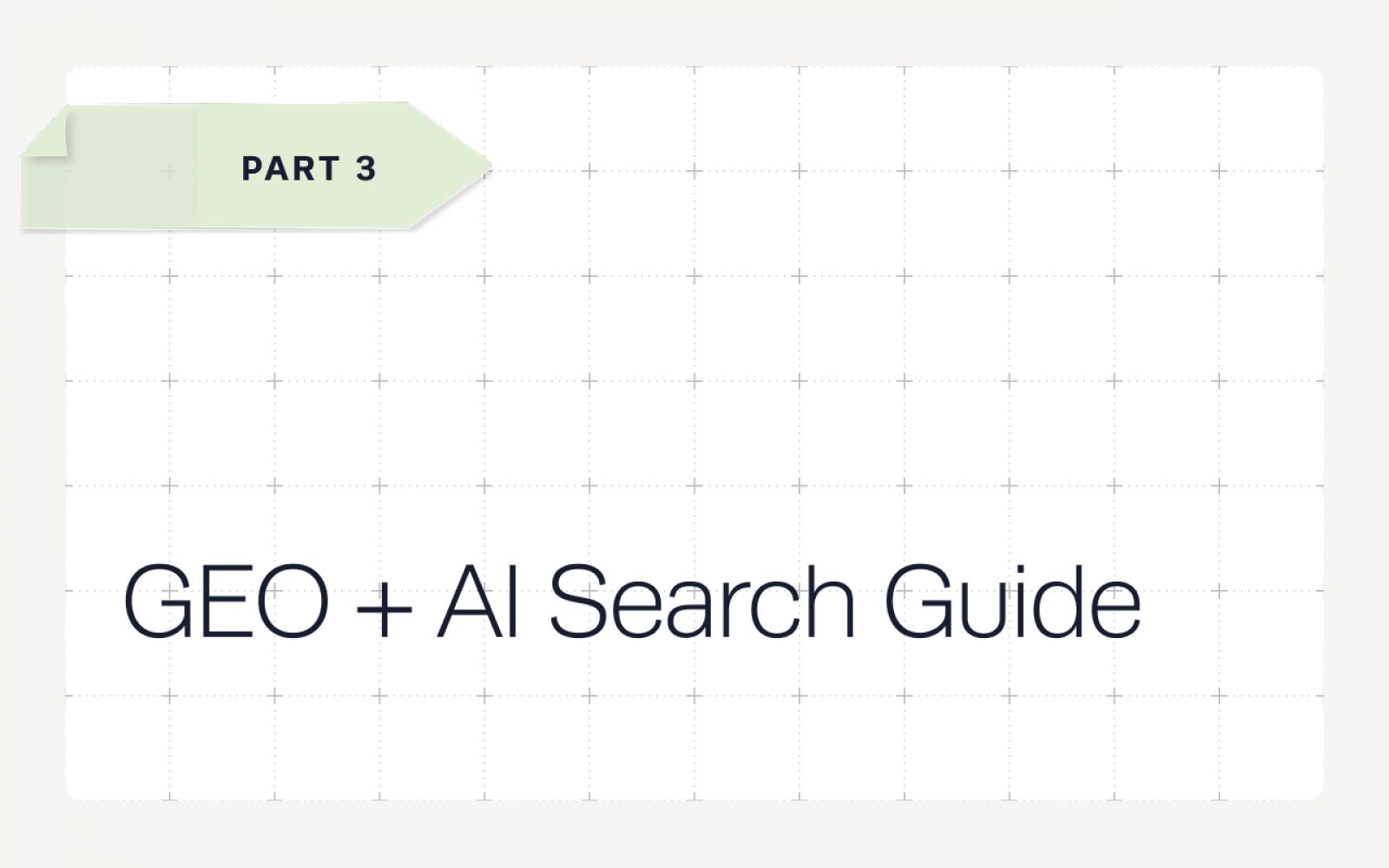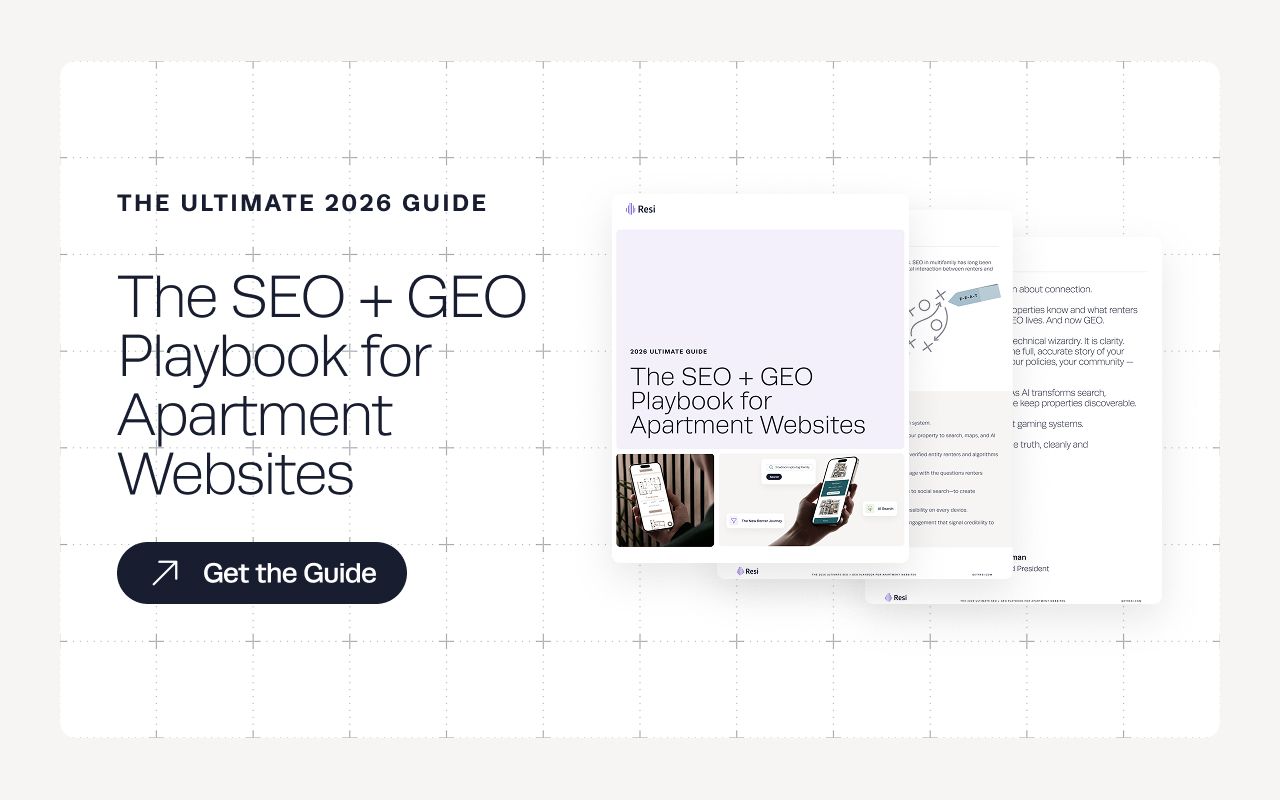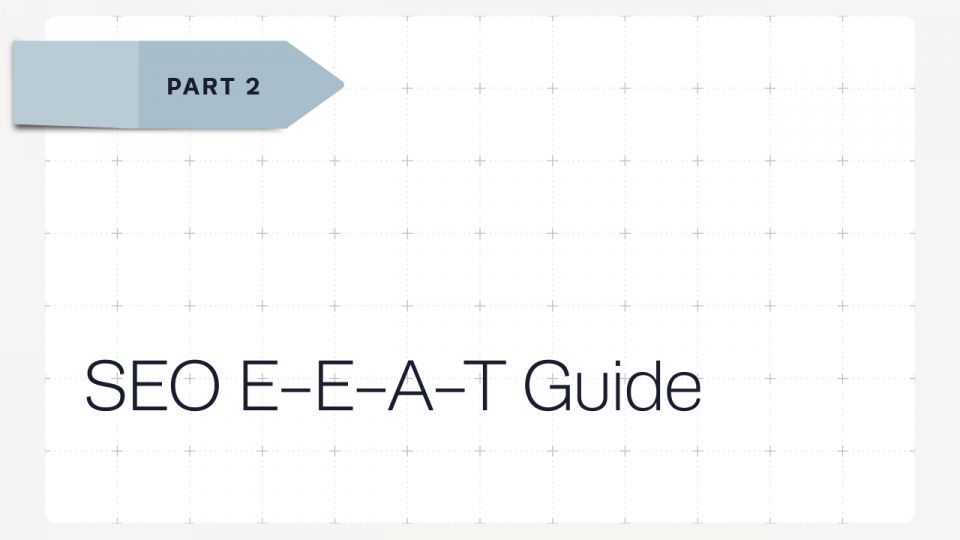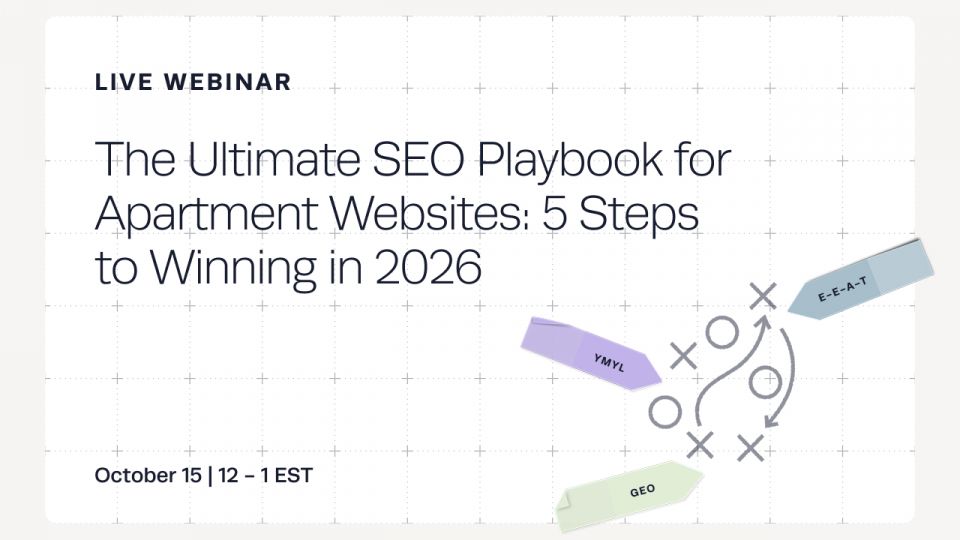The GEO Era: How AI is Rewriting Apartment SEO

Search is changing again. Where prospects once scanned through a page of blue links to find their new apartment, tools like AI Overviews, Perplexity, and ChatGPT Search now deliver answers directly on the results page. Instead of simply pointing your prospect to websites for them to research, these platforms are weaving together content, context, quality signals, and their user’s personal tastes in real time to generate one-of-a-kind answers. The way prospects discover apartments, neighborhoods, and your amenities is starting to look less like a list of options and more like a one-on-one conversation. With Google losing dominance in search and AI search gaining traction, the shift to AI doesn’t make SEO less important, it makes it indispensable now.
Generative engines still rely on structured data (schema), authoritative content, and trust signals to build their answers. The difference now is that visibility isn’t just about those rankings anymore. It’s about whether your content is strong enough to be pulled into the answer itself. That’s the role of Generative Engine Optimization (GEO): an extension of SEO designed to make sure your content isn’t just found, but used.
GEO Defined
Generative Engine Optimization, or GEO, is the natural next step in search. Traditional SEO is about showing up in ranking results, directly competing for concrete positions and keywords. GEO is about something bigger, making sure your content is good enough to become not just a resource for research, but the answer itself.
Think about how tools like Google’s AI Overviews or ChatGPT Search work. They aren’t just handing over a list of links for their user to look through. They stitch together insights from across the web into one polished response. If your site’s content isn’t clear, structured, and trustworthy, you never become part of that conversation.
That’s why GEO builds directly on SEO. Schema, strong topical coverage, and authoritative signals still do the heavy lifting. But GEO shifts the goal: it’s not just about being found, it’s about being used. In today’s search landscape, the sites that succeed are the ones AI trusts to power its answers.
The Foundation: SEO as the Bedrock of AI Search
Generative search feels new, but it’s standing on very familiar ground. Google’s AI Overviews, for example, are powered by the Knowledge Graph. It’s a system built on structured data, quality content, and the same link signals SEO has leaned on for years. In other words, generative answers don’t come out of thin air. They’re assembled from the same foundation that drives traditional search visibility.
That’s why strong SEO isn’t optional when it comes to generative search, it’s the prerequisite. Without crawlable pages, clear site structure, and structured signals like schema, AI engines can’t confidently reuse your content. And for multifamily, the foundation stretches even further into E-E-A-T (Expertise, Experience, Authoritativeness, Trustworthiness). Floor plan schema, detailed amenity descriptions, and neighborhood guides don’t just boost rankings, they signal to AI engines that your property is reliable enough to surface.
Best Practices for Success
If SEO is the foundation, GEO is the remodel that readies your site for a new kind of visibility, similar to how you remodel a property to align with your prospects’ changing tastes. The playbook hasn’t changed entirely, it’s expanded. To show up in generative answers, your site needs to be both easy to find and easy for AI to understand.
- Structured Data & Schema:
- Schema markup is the backbone of GEO, in the same way it’s the backbone in SEO. It feeds the Knowledge Graph and helps AI engines connect your property to entities like amenities, floor plans, and location details. Without it, your site isn’t able to feed this information into AI engines, leaving you out of generative answers altogether.
- Clear, Authoritative Content:
- Generative engines prioritize sources that demonstrate topical authority and deliver direct answers. Robust property descriptions, in-depth neighborhood guides, and amenity pages that go beyond surface-level features give AI the clarity it needs to reuse your content.
- E-E-A-T Alignment:
- Expertise, Experience, Authority, and Trust are just as critical in generative search as they’ve been in SEO. They’re important for multifamily now more than ever. Transparent, user-first content backed by credible sources signals to AI that your property is trustworthy enough to cite.
- FAQs & Conversational Tone:
- Generative responses are conversational by nature. Well-structured FAQ pages written in natural, question-and-answer style make it easier for AI to pull your content directly into overviews.
- Content Breadth + Depth:
- AI engines synthesize information from clusters of related topics. Cover both the core subjects (floor plans, amenities, leasing details) and the surrounding context (moving tips, neighborhood culture, local attractions) to strengthen your authority across a wider semantic field.
- Technical SEO:
- Crawlability, site speed, and mobile-first design remain non-negotiable. If search engines can’t reliably access or parse your site, it won’t matter how strong your content is, AI engines won’t be able to use it.
What to Avoid in GEO
Not every optimization helps you in GEO. In fact, some old habits will actively hold you back, or even have your site overlooked by AI engines. Here’s what to steer clear of:
- Thin or Duplicate Content:
- Generative engines are built to filter out vague, repetitive material. If your site doesn’t offer unique value, it won’t make it into AI-driven summaries.
- Keyword Stuffing:
- Packing pages with repetitive keywords doesn’t just hurt readability, it also makes your content harder for AI systems to parse, and undermines your authority. Generative engines thrive on clarity and content, not over-optimization.
- Ignoring Schema:
- Without structured data, your site is effectively invisible to the Knowledge Graph. If AI engines can’t map your property or brand to specific entities, your risk being skipped entirely in generative results.
- Over-Optimizing for Snippets:
- It’s tempting to chase AI answer placements, but remember, the funnel still matters. Generative visibility’s goal is to drive visitors to your site, so your site still needs to be optimized for the user experience as well.
Future Outlook
At the end of the day, generative search isn’t just a fad, it’s a new frontier for discovery. Just like the launch of Google’s Knowledge Graph in 2012 reshaped SEO, generative engines are doing it again. GEO is how brands prepare not just for today’s search landscape, but for the next decade of it.
For organic marketing teams, the role is evolving. It’s no longer enough to rank well, you need content that’s structured, credible, and authoritative enough to be pulled directly into generative answers. For multifamily, that means properties with strong local authority, detailed schema, and trustworthy content will have a distinct advantage when prospects search.
The takeaway is simple: being proactive now pays off later. Businesses that double down on holistic optimization (technical SEO, structured data, local relevance, and content designed for both humans and AI) will be the ones confidently surfaced in the next decade of search experiences.
Generative search may feel new, but the rules haven’t changed as much as it seems. SEO is still the bedrock with structured data, authoritative content, and technical excellence remaining the signals search engines rely on. What’s changing is how that work pays off. With GEO, the question is no longer “Can people find us?”, it’s “Will AI use us?”
By building on SEO’s foundation and layering in GEO best practices, multifamily websites can do more than show up in results, they can become part of the answer. That’s the future of visibility in a generative-first world: being trusted, cited, and surfaced by the next generation of search, and the next generation of renters.


